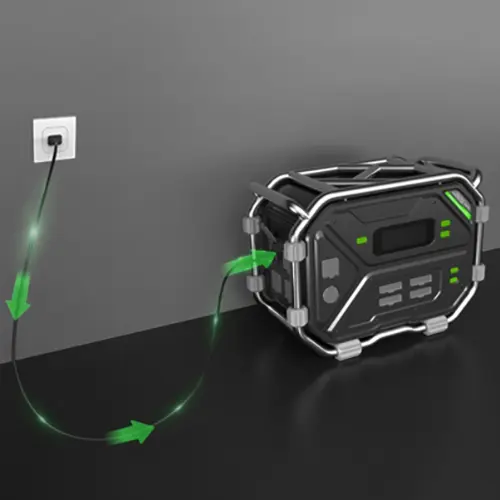In today’s fast-paced world, the demand for efficient and sustainable energy solutions has never been higher. One of the most significant advancements in this area is the development of rechargeable power supplies. From powering our everyday gadgets to driving the future of transportation, these innovative energy sources are transforming the way we live and work.

The Rise of Rechargeable Power Supplies
Rechargeable power supplies, commonly known as rechargeable batteries, have come a long way since their inception. The earliest forms of rechargeable batteries, such as the lead-acid battery invented in the 19th century, were bulky and had limited applications. However, the development of new materials and technologies over the past few decades has revolutionized the industry.
Lithium-ion batteries, introduced in the 1990s, marked a significant turning point. These batteries offered higher energy density, longer life cycles, and lighter weight compared to their predecessors. As a result, they quickly became the standard for portable electronics, including smartphones, laptops, and tablets. Today, advancements in lithium-ion technology continue to push the boundaries of what rechargeable power supplies can achieve.
Applications Across Various Sectors
The versatility of rechargeable power supplies has led to their adoption across a wide range of industries. In the consumer electronics sector, they have become indispensable. Devices such as wireless earbuds, smartwatches, and even electric toothbrushes rely on rechargeable batteries to provide convenience and portability.
In the transportation sector, the impact of rechargeable power supplies is particularly profound. Electric vehicles (EVs) are at the forefront of this revolution. Companies like Tesla, Nissan, and Chevrolet are investing heavily in EV technology, aiming to reduce carbon emissions and dependency on fossil fuels. The development of high-capacity, fast-charging batteries is essential for the widespread adoption of EVs, and significant progress is being made in this area.
Renewable energy storage is another critical application. Solar and wind power generation are inherently intermittent, and rechargeable batteries provide a solution for storing excess energy generated during peak times. This stored energy can then be used when production is low, ensuring a stable and reliable power supply. Grid-scale battery storage systems are being deployed worldwide, contributing to a more sustainable and resilient energy infrastructure.
Challenges and Future Prospects
Despite the remarkable progress, rechargeable power supplies still face several challenges. One of the primary concerns is the environmental impact of battery production and disposal. The extraction of raw materials, such as lithium and cobalt, can have significant ecological and social consequences. Additionally, the recycling of batteries is a complex and costly process that needs further improvement.
To address these issues, researchers are exploring alternative materials and battery chemistries. Solid-state batteries, for example, promise higher energy density and improved safety by replacing the liquid electrolyte with a solid one. Other innovations, such as sodium-ion and zinc-air batteries, aim to reduce reliance on scarce and expensive materials.
Moreover, advancements in battery management systems and charging infrastructure are crucial for maximizing the efficiency and lifespan of rechargeable power supplies. Smart charging technologies, such as wireless and ultra-fast charging, are being developed to enhance user convenience and reduce charging times.
Rechargeable power supplies have become an integral part of modern life, driving innovation and sustainability across various sectors. As technology continues to evolve, the potential for these energy solutions is boundless. By addressing current challenges and investing in research and development, we can unlock even greater possibilities for a cleaner, more efficient, and connected world. The future of rechargeable power supplies is bright, and their impact will undoubtedly shape the way we power our lives for generations to come.




